Staff
Matt Cohen, Director
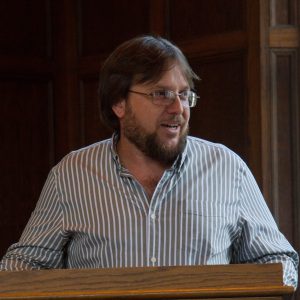
Carl S. Swisher Chair in Water Resources
Phone: (352) 846-3490
mjc@ufl.edu
Dr. Cohen is a Professor in the School of Forest, Fisheries, and Geomatics Sciences. He is an ecohydrologist with nearly 20 years of experience addressing water resource and ecosystem science challenges in Florida and around the world. Dr. Cohen received his PhD from the University of Florida in 2003 and joined the faculty in 2006. He has led research focused on hydrological restoration of the Everglades and Big Cypress, the changing ecological state of Florida’s springs, the deep links between forests and water, and the changing patterns of Arctic and Antarctic stream functions. This work has been funded by the National Science Foundation, the Department of Energy, all five Water Management Districts and the Department of Environmental Protections, and the US Army Corps of Engineers, and has resulted in over 120 publications.
Paloma Carton de Grammont, Assistant Director
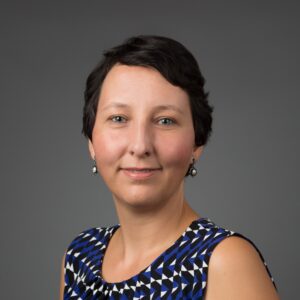
Paloma holds a B.S degree in Biology, a M.S. degree in Environmental Sciences and a Ph.D in Geography, all earned at Universidad Nacional Autónoma de México. She has twenty years of experience supporting interdisciplinary teams addressing natural resource management and governance issues.
Paloma applies her interdisciplinary training, professional experience, and facilitation skills to support the Water Institute Research, Education and Outreach programs. As Assistant Director she is responsible for the Water Institute Outreach, Stakeholder Engagement and Communication initiatives.
Since joining the Institute in 2018, she has fostered partnerships among Affiliate faculty and staff, external partners, and stakeholders and has supported faculty, student and stakeholder teams to develop and execute externally funded research projects.
DARLENE VELEZ, RESEARCH COORDINATOR III
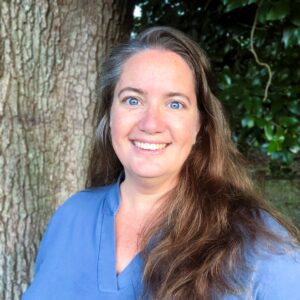
Phone: (352) 294-7742
saindodd@ufl.edu
Darlene is an experienced Environmental Scientist and Facilitator with a demonstrated history of working in natural resources research and management for over 20 years. She earned her B.S. degree in Marine Sciences from Eckerd College and her M.S. degree in Fisheries and Aquatic Sciences from University of Florida. Her area of expertise is in environmental ecology including water chemistry and hydrology of rivers, springs, and estuaries. Darlene is also a Natural Resources Leadership Institute Aluma (Class XX) and currently focuses on interdisciplinary project coordination, stakeholder engagement, and facilitation.
Sarah Marc, Communications Specialist
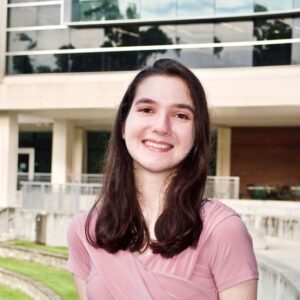
Phone: (352)-294-7743
sarahmarc@ufl.edu
Sarah graduated from the University of Florida with a Bachelor of Science in Environmental Science. She previously worked with UF/IFAS Extension to create educational materials focusing on Florida Friendly Landscaping, private wells and septic systems, and agricultural best management practices. As the Communications Specialist for the Water Institute, Sarah develops and implements communication strategies to support the Water Institute.
Ivelisse Ruiz Bernard, Administrative Assistant
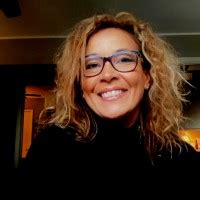
Before joining the Water Institute, Ivelisse held scientific and research support roles at the University of Florida and the USDA Forest Service, where she contributed to field monitoring, data collection, project coordination, and community-centered environmental initiatives. Her work has spanned aquatic ecology, biogeochemistry, forest ecology, environmental education, and public engagement, giving her a broad perspective on interdisciplinary environmental research.
Originally from Puerto Rico, Ivelisse earned her M.S. in Fisheries and Aquatic Sciences from the University of Florida and her B.S. in Biology from the University of Puerto Rico. She is currently investing in professional development in project management, administrative leadership, and event coordination. She is passionate about science, community engagement, education, science communication, and supporting research that strengthens natural resource resilience.
Nicolas Fernandez, Postdoctoral Associate
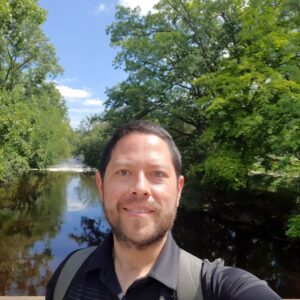
Phone: (352)-294-7747
nicolasfernandez@ufl.edu
Dr. Fernandez is a Chemical Engineer (2009) with M.S. (2019) and Ph.D (2023) degrees in Environmental Engineering from Universidad de los Andes (Colombia). He transitioned from an extensive background in the private sector (environmental consulting, technical sales, and patents), to focus on the intersection of data science, water quality, and hydrology. Specifically, he works on researching new connections between these fields, harnessing the recent and growing availability of large datasets. He also helps stakeholders to manage their water data. During his journey in research and education, and before joining the Water Institute at the University of Florida in 2025, he occupied a Postdoctoral position at the department of Soil Water and Ecosystem Sciences at the same University and was a visiting scholar at Michigan State University.
Wendy D. Graham, Professor
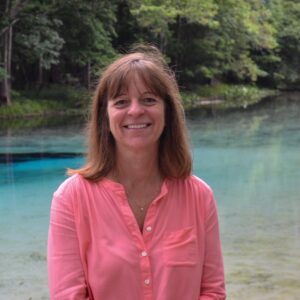
Dr. Wendy D. Graham is a Professor in the Department of Agricultural and Biological Engineering and the founding Director of the Water Institute. She conducts research in the areas of coupled hydrologic-water quality-ecosystem modeling; water resources evaluation and remediation; evaluation of impacts of agricultural production on surface and groundwater quality; and development of hydrologic indicators of ecosystem status.
Currently, Dr. Graham serves as the Division Director for the Division of Research, Innovation, Synergies, and Education (RISE) within the Directorate for Geosciences (GEO) at the National Science Foundation. She earned her Bachelor’s Degree in Environmental Engineering from the University of Florida and holds a PhD in Civil Engineering from the Massachusetts Institute of Technology.
Rob de Rooij, Research Assistant Scientist
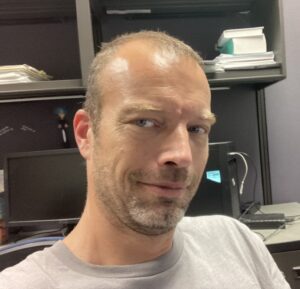
Phone: (352) 294-7745
r.derooij@ufl.edu
Rob earned his Doctor of Science degree at the Centre of Hydrogeology, University of Neuchatel (Switzerland) in 2007. His research activities were developing a finite element code for coupled, variably saturated flows, solving problems related to non-linearity, numerical instability and flow coupling, validation and verification.
His research at the Water Institute includes the development of a particle-tracking scheme tailored for coupled surface-subsurface flows as well as a finite difference scheme for coupling conduit flow, subsurface matrix flow and surface flow in karst systems. The objective of these schemes is to gain further insights into complex natural flow systems.
At this moment his research is focused on developing and testing methods to generate random 2-D and 3-D conduit networks for incorporation into watershed scale flow and transport models, and develop and test coupled discrete-continuum flow and transport models for the Silver Springs basin in Florida.
Nathan Reaver, RESEARCH ASSISTANT SCIENTIST
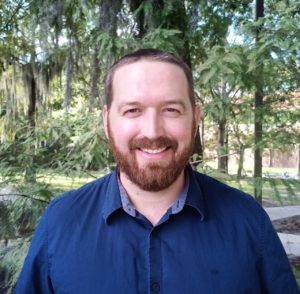
Phone: (740)-438-6453
nreaver@ufl.edu
Nathan holds a B.S. and M.S. degree in Bioengineering from the University of Toledo. He earned his Ph.D. and M.E. in Environmental Engineering Sciences from the University of Florida in 2018. His dissertation, “Linking Landscape Hydrologic Processes to Spring Ecosystem Dynamics”, investigated potential drivers of change in the primary producer communities of Florida’s spring-fed rivers using a multi-scale modeling approach.
Some of his broad research interests include: the intersection of water, energy, food, and the environment; complex system dynamics; ecosystem dynamics and restoration; and the nature of how scientific inferences are obtained from data. He has experience in theoretical, applied, and experimental science in several disciplines, ranging from the development and implementation of mathematical models to the design and execution of field and laboratory experiments.
Nathan applies his multi-disciplinary experience to his research at the Water Institute, which focuses on understanding hydrological, ecological, and social dynamics in karst watersheds.
Human Resources and Fiscal
Max Williams, Research Administration Liaison
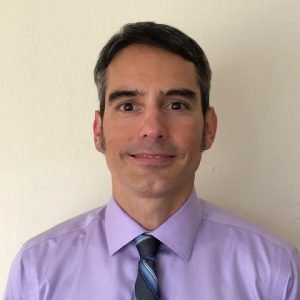
(352)-846-2399
mandomax@ufl.edu
Max Williams is the Director of Research Administration. He earned his BA from the University of Virginia and his Masters of Agribusiness from the University of Florida. Max has been with UF since 2003 and is a Certified Research Administrator. He has worked as the lead administrator in the Department of Astronomy in CLAS, and most recently served as the fiscal officer for several business units, including Agricultural and Biological Engineering and the Program for Resource Efficient Communities in IFAS, and the Water Institute in the Office of Research.
Ambassadors 2024-2025
Lexi Bolger
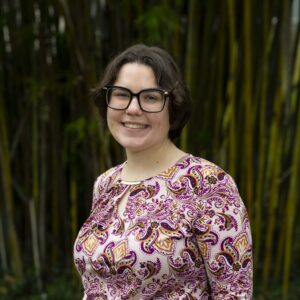
Lexi Bolger is a Ph.D. student in Interdisciplinary Ecology pursuing a career in environmental education and communication. For her dissertation, Lexi plans to develop, implement, and assess a multicultural community bioblitz. Previously a Graduate Student Coordinator at the UF Thompson Earth Systems Institute, Lexi has experience in outreach, coordinating professional development, and science communication.
Alexis Jackson
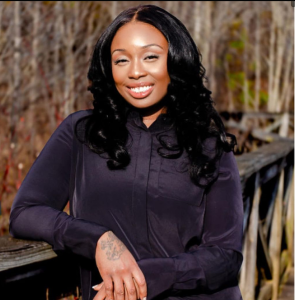
Alexis Jackson (AJ) is a PhD student in the Engineering School of Sustainable Infrastructure & Environment, the H.T. Odum Center for Wetlands, and the Watershed Ecology Lab at UF. Her research focuses on investigating the influence of hydrology and vegetation on wetland carbon storage using fieldwork, machine learning, and modeling techniques. She is an NSF GRFP Fellow and has experience in science communication and public outreach.

